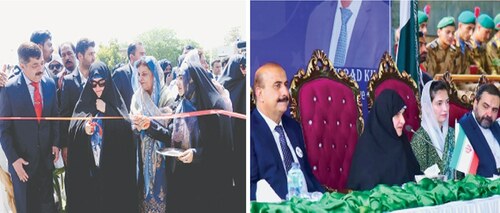ISLAMABAD, Nov 6: Times are austere indeed and people hit by it find themselves torn between the social pressures and what Islam really demands.
This year on Eidul Azha Wajahat Ali's motivation for sacrifice stems more from society's pressure rather than his personal faith.
He is a low grade government servant whose college going son constantly reminds him that this year he would be the only boy in his group of friends who would not be sacrificing in the name of God.
“I was planning to skip it this year and offer sacrifice on next Eid. Living is expensive these days in the salary I earn,” said the government servant who recently finished paying his two-month electricity bill in installments. It was an uphill task for him to explain his colleagues that skipping sacrifice was not a sin.Wajahat Ali was not the only one entangled in confusion over skipping sacrifice on this Eidul Azha. Ambar Baig studying in a private school has been pushing her parents to purchase a cow because most of her classmates were doing the same this year, said the 8th grader's mother explaining the pressure that parents were facing on part of their children these days.
That is only one side of the enigma. The other side was the belief that sacrifice was Farz (obligatory) for all.
Elaborating that sacrifice was obligatory on Sahib-i-Nisab (liable to pay Zakat), Vice President Administration, International Islamic
University Islamabad and Khateeb-i-Ala Faisal Mosque Sahibzada Sajidur Rehman cleared the air in a one liner, “Sacrifice on Eid is farz on the person on whom Zakat is farz ”.
Explaining the 'simple' formula, the professor urged not to get into the argument of what was farz and wajib (recommended) or Sunnah . Some scholars did not subscribe to his rather too strict approach. “Sacrifice is not Farz . It is Wajib (recommended) – a step below the acts that are farz and a step higher than Sunnah ,” explained Dr Mohammad Tufail who is a professor in the Hadith department, IIUI and is also Federal Shariat Court jurist consultant.
In the expert's opinion, sacrifice held significance in all the three revealed books. Even in pre-Islam Arabia, Arabs would mark their animals before sacrifice for a superior being, he elaborated.
“And Allah has ordered clearly in Surah Kausar to pray and sacrifice in His name. There is no offense/punishment mentioned in the Holy Quran if one does not sacrifice. Moreover, sacrifice is like an uplift or welfare scheme to remember the poor and take them along on this day,” Dr Mohammad Tufail added.
Yet another candid and progressive opinion came from a researcher with the Council of Islamic Ideology and author of books like 'Islam and Extremism', 'Religious Sects in Pakistan' and 'Unity of Islamic Ummah' Saqib Akbar who firmly believed that sacrifice was neither farz nor wajib on even those performing Haj let alone for Muslims living in Pakistan, Iraq, Iran, Afghanistan or elsewhere.
Calling for Ijtehad (reinterpretation) on the subject based on time and space, Saqib Akbar clarified that it was done to remember the sacrifice Prophet Ibrahim was going to make, he said, adding that “Although, it is the command of the Ulema that sacrifice is compulsory for a Haji but it is in no way sin if one does not sacrifice even if he or she can afford it.”
He argued that sacrifice was not practiced as enthusiastically in most Muslim countries as it was in Pakistan.
“We also need to sit together to figure out if mass-sacrifice is beneficial to the society as a whole. People do not consider that on days nearing Eid meat touches Rs1,000 per kg against Rs500 to Rs600 on other days or that the country lost heavily in foreign exchange to import sacrificial animals to meet the demand,” said the expert not ruling out the plus points that shepherds made good money once a year and that the poor got to eat plenty of meat. He argued that the clerics maybe sincere when they stressed on the importance of sacrifice but their sincerity was no good when one was finding it difficult to make ends meet.
“We respect teachings passed down to us a thousand years ago. But it is time to put heads together and do away with confusions,” he said explaining with an example how laws pertaining to slaves were no longer relevant.













































Dear visitor, the comments section is undergoing an overhaul and will return soon.